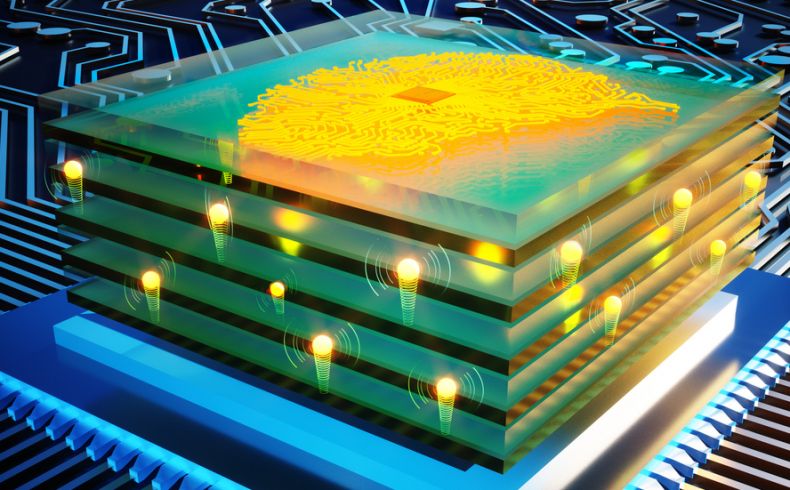Engineers working on “analog deep learning” have found a way to propel protons through solids at unprecedented speeds.
A multidisciplinary team of MIT researchers, including Professors Bilge Yildiz, Jesus del Alamo, and Ju Li, set out to push the speed limits of a type of human-made analog synapse that they had previously developed. They utilized a practical inorganic material in the fabrication process that enables their devices to run 1 million times faster than previous versions, which is also about 1 million times faster than the synapses in the human brain.
The research is published in Science and reported by the MIT News Office. Future work is to emulate the neural circuits and synaptic plasticity rules that are deduced in neuroscience, and the team will be pursuing that with other researchers in the Quest for Intelligence.

